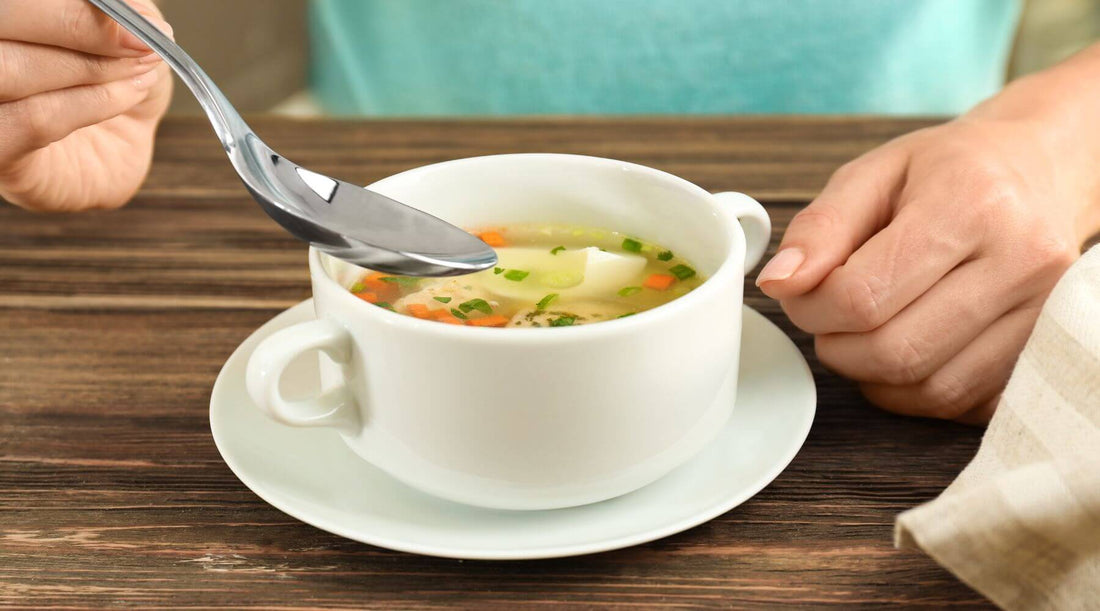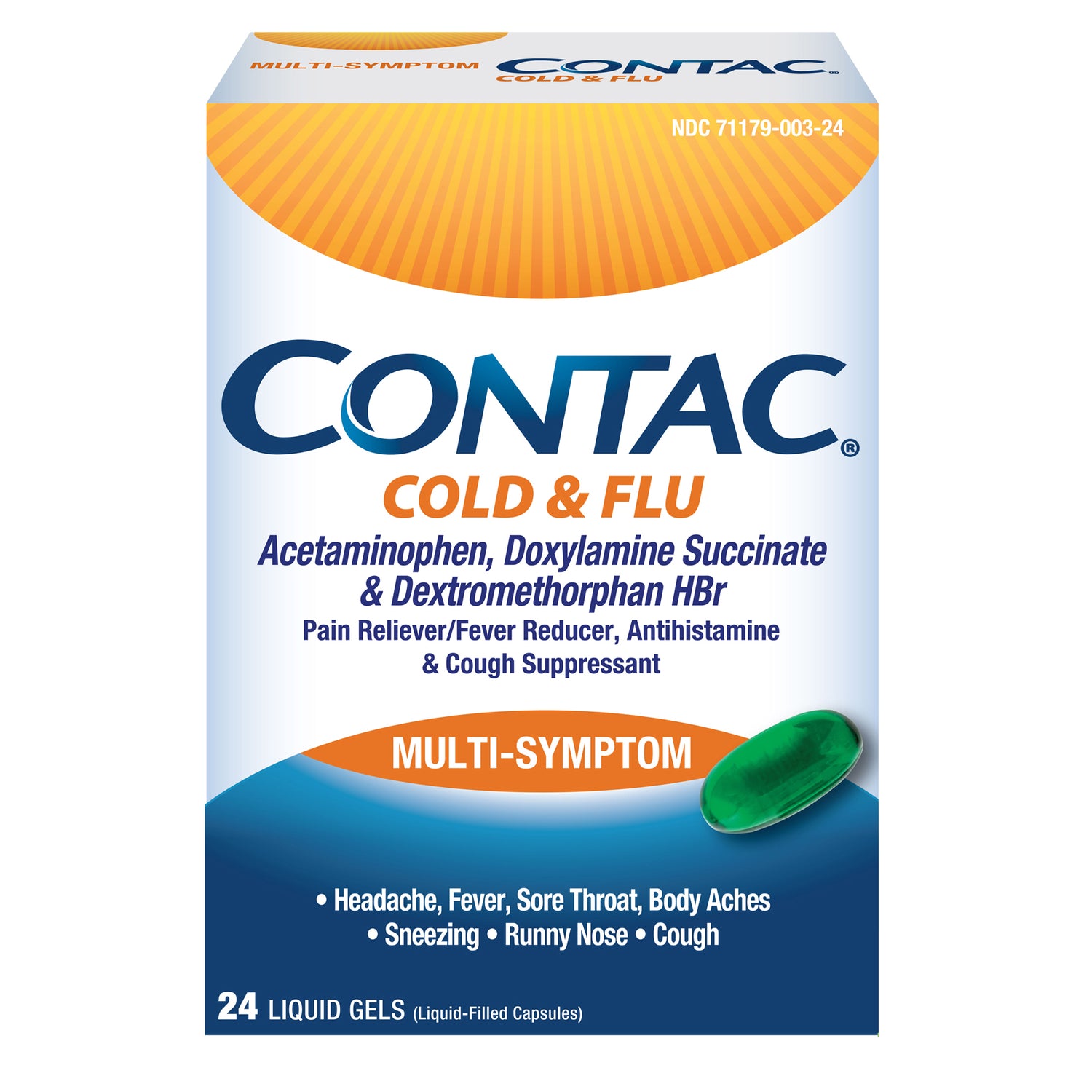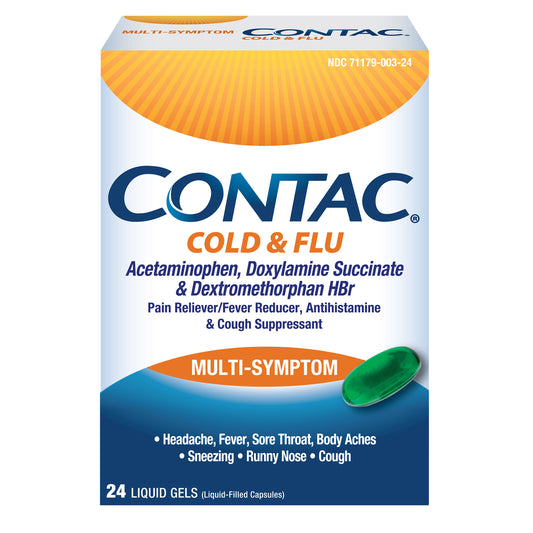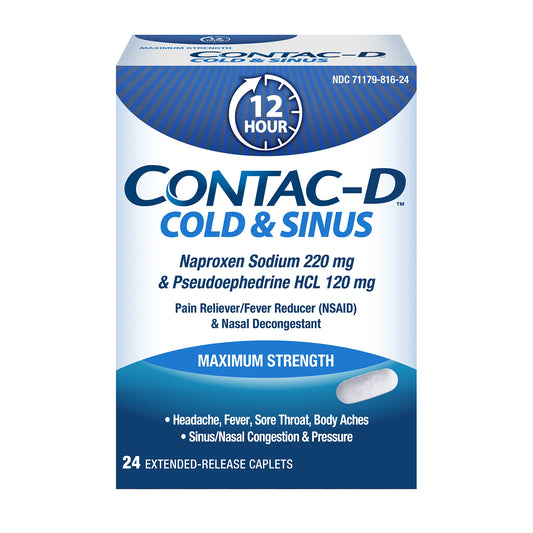
Cold & Flu Myths
Share
5 Myths about Cold and Flu:
We all grew up with Grandma’s special recipe for colds, passed down from generations long ago. Or we may have our own home remedies or sanitizing secrets that we’ve conjured up for the common cold or flu.
We have all done it – or at least seen others do it: covering up with extra blankets, trying to figure out if it’s “feed a cold, starve a fever” or is it the other way around, sticking your head over a bowl of steaming hot water – all in the hopes that we will sweat or starve the cold or flu out.
The only benefit most of these have is to make you feel a little better (because it may temporarily address the symptoms) but in the long run, may prolong your recovery time or do nothing at all.
These myths and misconceptions are as common as any common cold or flu.
And there are of course, many home remedies that aren’t on this list and this is not meant to be an exhaustive reference page.
We just want to help educate everyone about the most common myths relating to the cold and flu and, hopefully, help you to better prepare to cope with them in the future. So the best way to truly protect you from cold and flu viruses is to know the facts, not the legends.
1. Alcohol is a good remedy for treating a cold or flu
Simply not true. This common myth is based on the perception that alcohol has a sterilizing effect on a cold or flu virus. However, when alcohol enters the body, it is absorbed through the stomach and gastrointestinal tract,rather than the upper respiratory tract, where viruses reside. Because it does not come in direct contact with the virus, there is little chance that any consumed alcohol can effectively combat a cold or flu.
Not only is alcohol ineffective at killing cold and flu viruses, it can actually have detrimental effects that may worsen the symptoms of the common cold or flu. Alcohol dehydrates the body, slowing down other bodily reactions and weakening the immune system. Additionally, alcohol may conflict with other medications, giving rise to serious complications. The bottom line is that any alcoholic beverage should be avoided when you’re sick.
2. Chicken soup is a good remedy for treating a cold or flu.
Chicken soup might just be the most common home remedy for treating a cold or flu, but is it really an effective treatment against the symptoms of a cold or flu virus?
As with most decaffeinated hot liquids, chicken soup has been shown to help temporally clear nasal congestion. However, due to their high sodium content, many chicken soups could actually worsen cold and flu symptoms. Hypernatremia occurs when there is an electrolyte disturbance that is defined by an elevated sodium level in the blood.
Because excess sodium has been shown to have dehydrating effects on the body, many types of chicken soup may actually have detrimental effects on the treatment of common cold and flu symptoms, making this the ultimate cold and flu myth.
Staying properly hydrated is one of the most important things you can do when treating a cold or flu.
Hydration can help to loosen mucus and assist in alleviating congestion. Though chicken soup may be the ultimate comfort food, its dehydrating properties may end up doing more harm than good when treating a cold or flu.
3. Feed a cold and starve a fever.
Should you feed a cold and starve a fever? Or is it the other way around, starve a cold and feed a fever?
Whatever you may have heard about starving or feeding a cold or the flu, the good news is that this maxim is a myth: starving is never an appropriate option for dealing with a cold or flu. That’s because calorie restriction (starving) puts the immune system in a state of distress, while calorie ingestion (feeding) favors immunity.
The best thing you can do when you’re suffering from a cold or flu is take in plenty of fluids and eat foods rich in zinc and antioxidants like beta-carotene and vitamins C and E.
Foods rich in zinc include: eggs, meats, nuts, seafood, seeds, wheat germ, and whole grains; while most brightly colored fruits, vegetables and dark leafy greens are high in antioxidants. And don’t forget to drink lots and lots of water!
4. Antibiotics can cure a cold or the flu.
Nope, not true. It is a very common misconception that antibiotics can be used to cure the common cold or flu.
In a study published by the Oxford Journal of Clinical Infections Diseases, a majority of patients were willing to take antibiotics for conditions likely to have a viral origin, such as flu, sore throat, cough or earache.
However, antibiotics kill bacteria and specifically treat bacterial infections. Common colds and the flu are caused by viruses, not bacteria. Antibiotics do not help fight viruses. Additionally, taking antibiotics for a viral infection may do more harm than good: using antibiotics when they are not needed — and cannot treat the illness — increases the risk of a resistant infection later.Antibiotics may be used to treat bacterial infections that may result from a viral infection, but not the viral infection itself.
5. Cold weather causes a cold or the flu.
No! We’ve all been cautioned against leaving the house with wet hair or without a jacket for fear of “catching a cold.” The idea that a person can “catch” a cold from exposure to cold or wet weather may be the most ubiquitous or common of all myths about the cold or flu.
Even the name “a cold” alludes to this misconception. The truth is that viruses are the only causes of the common cold or flu. So how can we explain the higher incidence of colds and flu during periods of colder, wetter weather?
The US government’s National Institute of Allergy and Infectious Diseases proposes that the reason for this may have to do with the opening of schools and the tendency for people to stay inside around others during colder seasons. Both of these factors increase the opportunity for viruses to spread among people.
The best way to avoid an infection is to limit your exposure to the viruses, irrespective of the weather. This means staying away from infected people, keeping your hands away from your eyes and nose, washing your hands often (especially during the cold season), and cleaning surfaces that may be infected with viruses with a disinfectant.
Resources:
K Saketkhoo, A Januszkiewicz, and M A Sackner. Effects of Drinking hot water, cold water and chicken soup on nasal mucus velocity and nasal airflow resistance. Chest Journal; Chest Publications. Retrieved December 15, 2011.
Hypernatremia: Fluid and Electrolyte Metabolism; Merck Manual Professional.
http://www.merckmanuals.com/professional/endocrine_and_metabolic_disorders/electrolyte_disorders/hypernatremia.html?qt=&sc=&alt=. Retrieved December 15, 2011.
Gijs R. van den Brink, Daniëlle E. M. van den Boogaardt, Sander J. H. van Deventer, and Maikel P. Peppelenbosch. Feed a Cold, Starve a Fever? January 9, 2002; Laboratory for Experimental Internal Medicine, Academic Medical Center, Amsterdam, The Netherlands. Retrieved from: http://www.ncbi.nlm.nih.gov/pmc/articles/PMC119893/ December 20, 2011.
WebMD Medical Reference. Starve a Cold, Feed a Fever? Cold & Flu Health Center. Retrieved from: http://www.webmd.com/cold-and-flu/cold-guide/starve-cold-feed-fever December 20, 2011.
Jean Claude Pechere. Oxford Journals of Clinical Infectious Diseases. Patients’ Interviews and Misuse of Antibiotics; Retrieved from:
http://cid.oxfordjournals.org/content/33/Supplement_3/S170.full. December 28, 2011.
Centers for Disease Control and Prevention. Antibiotics Aren’t Always the Answer. Retrieved from: http://www.cdc.gov/Features/getsmart/; December 28, 2011.
Mississippi State Department of Health. Colds, Flu and Antibiotics. Retrieved from: http://msdh.ms.gov/msdhsite/_static/14,1652,228.html; Retrieved December, 28, 2011
Centers for Disease Control and Prevention. Antibiotics Aren’t Always the Answer. Retrieved from: http://www.cdc.gov/Features/getsmart/; December 28, 2011.
The Regional Medical Center of Acadiana. True or False: Being Exposed to Wet, Cold Weather Increases the Risk of Infection. Retrieved from: medicalcenterofacadiana.com; December 28, 2011.




